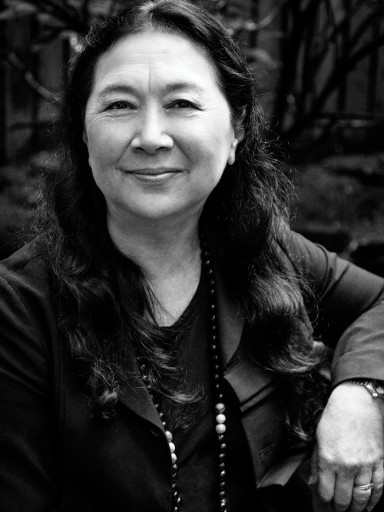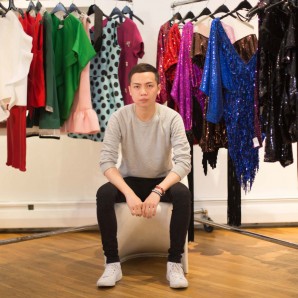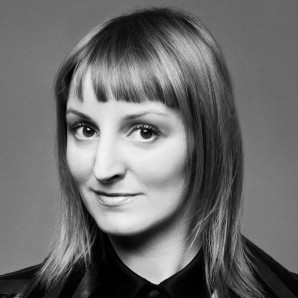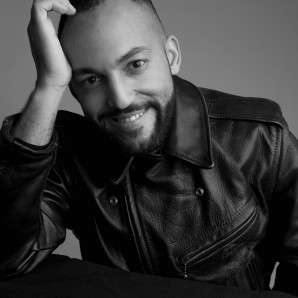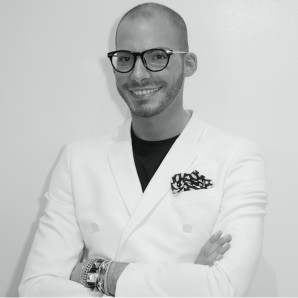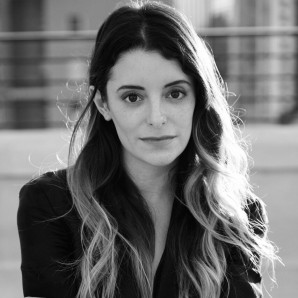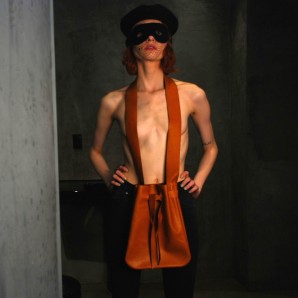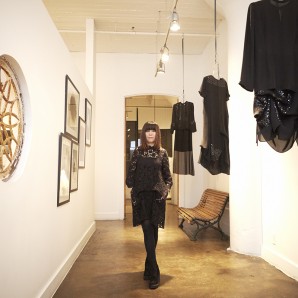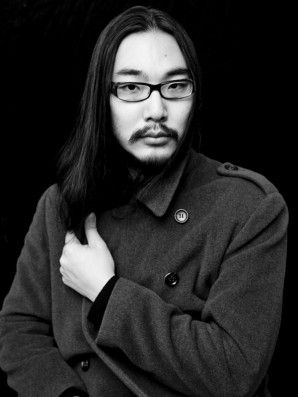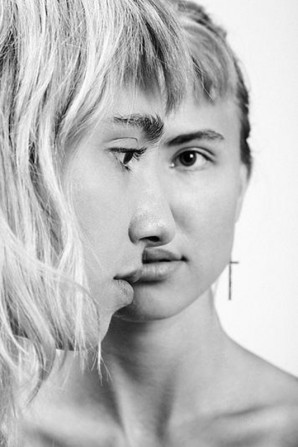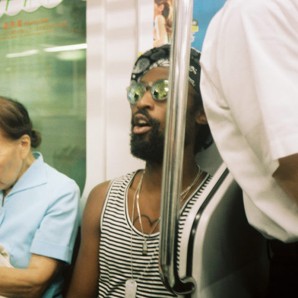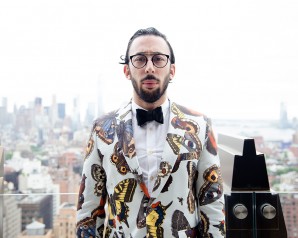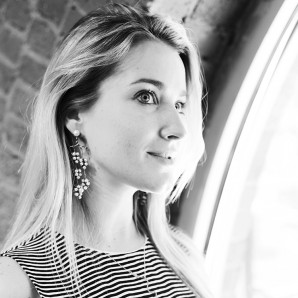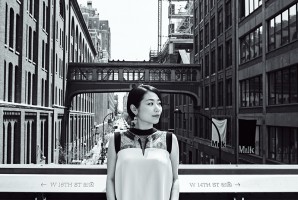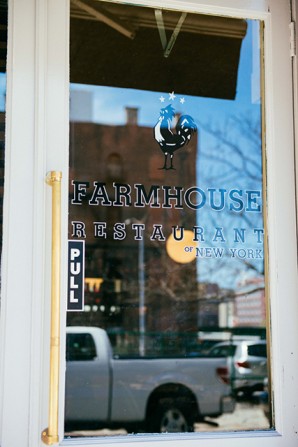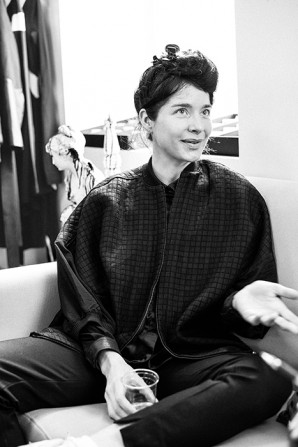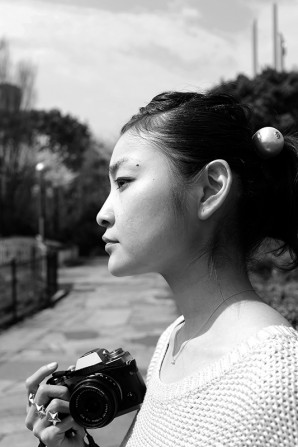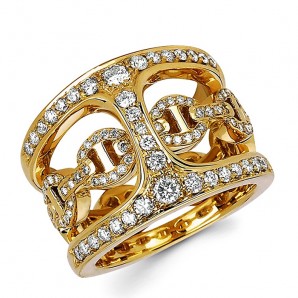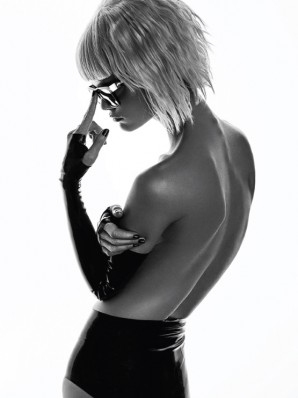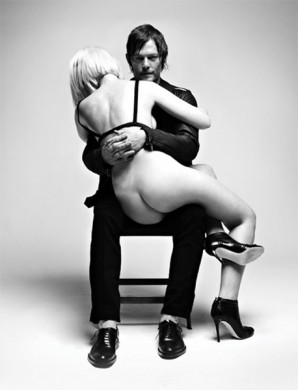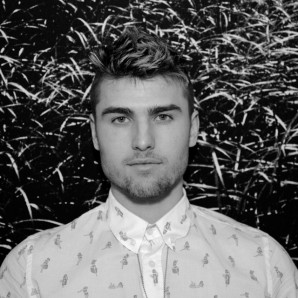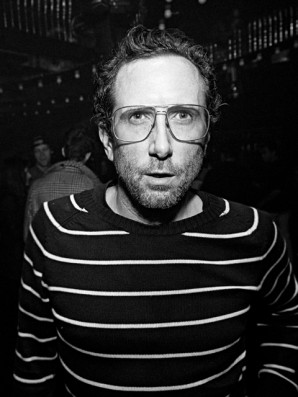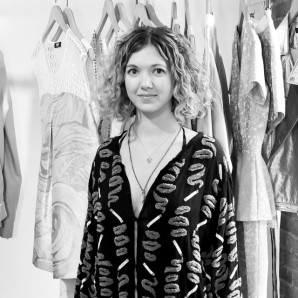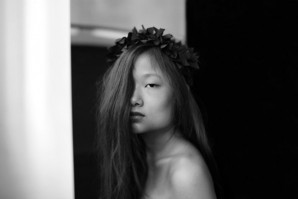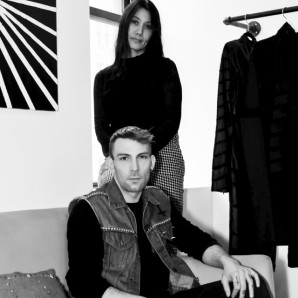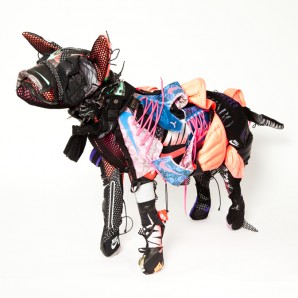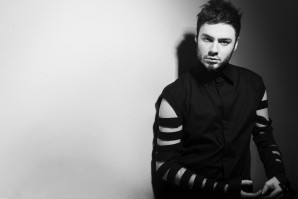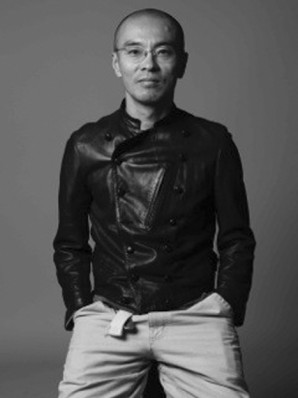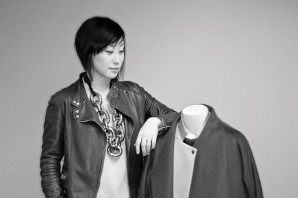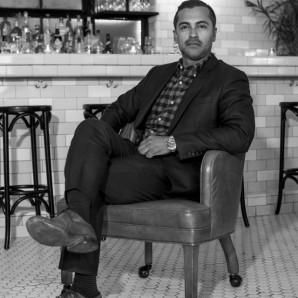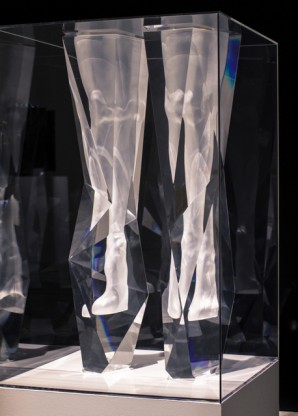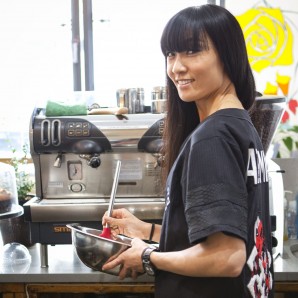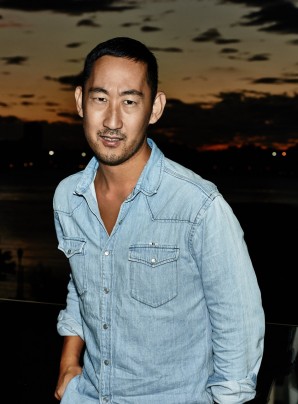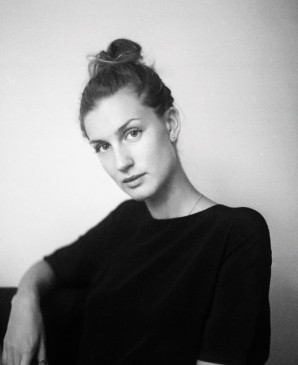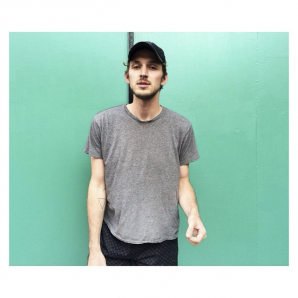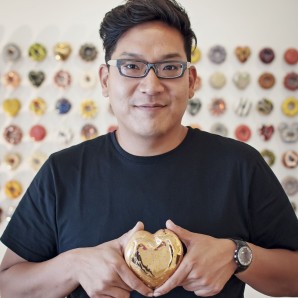"Cheng-Huai Chuang was introduced to fashion at a young age"
NIAN FISH INTERVIEW
Nian Fish, creative director of KCD, has been, for decades, a pivotal figure in the fashion world, assembling and producing fashion shows that have become cultural benchmarks unto themselves, such as Calvin Klein’s 1994 show which saw Mark Wahlberg’s star rise—among other things—as he strutted underwear-clad down the runway.
Her imprint on the image of the industry has taken on another shape by way of her work as chairperson of the Council of Fashion Designers’ Health Initiative, which seeks to promote awareness of eating disorders and spur dialogue about healthy body image among runway models. Her work with the CFDA is giving way to a new online project due to go live in April 2013, featuring a series of short films. But, as this conversation with TWELV shows, in Fish’s life the common threads between fashion and cinema stream beyond video.
Could you tell me a bit about your childhood and perhaps any moment that was a hint of your future career pursuits?
The first thing is that I consider fashion a theatre. We traveled all around the world. My father was in the Army and at one point—which I think is the most crucial point in my life—he left my mother and he didn’t come home for months. My mother had to earn a living and eventually we had to come to New York to work. What I loved so much about New York were all of the different races. There were the Jews, the Puerto Ricans, the Chinese, the Koreans, the Hawaiians; there were the Irish, the Italians. At 10, I started gathering these people who had different talents like the Chinese violinist and the Eurasian hula dancer, who passed for Hawaiian. I would style them, charge 25 cents for admission, and we’d perform in the lobby of my little tenement. I didn’t realize the fashion part of it until just now—but a big part of it was making sure they looked good; refining their characters to make them look more “Hawaiian” or more “Puerto Rican”.
Amazing. So when was this, the 50s?
This was 1960.
So 25 cents was quite a bit of money.
I know! The funny thing is that we were middle class until my parents split up. I started going to this upper-middle-class, Jewish, very liberal camp. My friends were very well educated and I wanted to keep up with them. I felt in order to be loved by them, I had to have a good wardrobe. My aunt’s clothes, which were hand- me-downs, were no longer working for me. I wasn’t even embarrassed about it until I met these friends. What the camp started for me was that I began to lie about where I lived and I started to steal clothes so that I could keep up. It’s funny about acceptance and what you’d do to be accepted. Fashion as a business is all about being loved. You become your own marketing vehicle by what you wear. You go to a young art opening and everyone’s got the flannel shirt or the vintage this. They’re dressed down but it’s all about fashion. The people are saying “I’m cool, I’m a New Yorker; I don’t care about designer clothes but I’m going to look independent.” But at the same time, there’s the indie look and in that way, it’s a tribal acceptance.
It’s an indicator of where you see yourself.
It’s an indicator of where you see yourself and what tribe you are. I think acceptance comes a lot from ap- pearance in our universe.
Literally and figuratively. So, you grew up on the Lower East Side. Describe, in one word or phrase, the LES of your childhood.
Melting pot.
Describe the LES of the present.
Cooly gentrified.
If you were to assemble a cast of figures from movies into a fashion show, who would be walking in it? Who would follow whom?
Jimi Hendrix, the way he looked in the Woodstock documentary. Elizabeth Taylor in Butterfield 8. George Harrison, as in the Scorcese documentary, how he looked in the mid-70s. Audrey Hepburn, in Funny Face, in her beatnik look. The blind samurai in Zatoichi Meets Yojimbo. Ziyi Zhang in Memoirs of a Geisha—so elegant. Uma Thurman in Henry and June. Faye Dunaway and Warren Beatty in Bonnie and Clyde. Paul Newman in Cool Hand Luke. And Bob Dylan in the documentary Don’t Look Back.
I hear you’re writing a screenplay about your parents’ life. Could you tell me a bit about that?
Yes, I’m writing it, filming it and will be directing it. The project is going into its seventh year. I’m funding it myself. My mother is Japanese and Chinese. She comes from a very well-to-do family. How they got their money was from businesses in China that invested in the first Chinese restaurants in Japan. As for my father, the term “white trash” wasn’t used in those days but he would be called “hillbilly”. His mother was from Georgia and played the spoons. His father was a railroad and factory worker, so they were truly working class. The documentary, the story, is about them: two different classes, two different races coming together, my mother coming to the country without speaking English and what that meant; my father’s philandering and what that meant. Then there’s the story of my father leaving my mother, him abandoning us, and my mother and I moving to New York.
But what happened after that is that my father started robbing banks. He went missing and I tried to find him, but I didn’t know he was in jail for 10 years. He got caught after the fourth bank heist and became known as the “Kissing Bandit”. It took a while before my father would talk about his criminal history. The other thing is that he and my mother had this black market business right after World War II and during the Korean War. They would sell cigarettes and mayonnaise. Mayonnaise was a hot commodity after the war and I’ll never forget about my maid getting fired for stealing mayonnaise. But my parents had a good little business going and probably built up a pretty good nest egg. Hey, they were Bonnie and Clyde! Another thread.
Written by ANNE SZUSTEK
Photography CAMERON KRONE
Makeup by KEIKO HIRAMOTO @Bryan Bantry Agency.
Production, Casting ALISON NGUYEN.
Edited by NANAMI INABA
related posts
NEW TYPE #12: DROMe - MARIANNA ROSATI INTERVIEW
" I carry in my heart the values I've learned from my hometown - such as being true to myself and to my style"
IKEMEN #30: JORGE URENA
IKEMEN (ē´k´mɛn): Japanese Slang
"REALLY, REALLY, RIDICULOUSLY GOOD LOOKING PEOPLE"
NEW TYPE #11: LODOVICO ZORDANAZZO INTERVIEW
TWELV Magazine sat down with Lodovico Zordanazzo during his NYC visit to discuss his new collection and unique perspective on shoe design.
NEW TYPE #9: J.ELSTER - JENNIFER ELSTER Interview
TWELV Magazine recently visited filmmaker and designer, Jennifer Elster, at her studio, The Development.
NEW TYPE #8: MORGANE LE FAY - Liliana Casabal Interview
Noritaka Tatehana Exclusive Interview
The talented young Japanese designer, Noritaka Tatehana, who collaborated with Iris Van Herpen to design Lady Gaga’s shoes.
CHAOS CHAOS Interview
Formerly known as Smoosh, Asy and Chloe Saavedra of Chaos Chaos have always been a sister-sister duo.
THE KNOCKS Takes Tokyo
Recently, electro-pop duo, The Knocks, visited Japan to perform in the ARC+TWELV party at ARC, a newly opened venue in Tokyo.
CAVERNS Interview
TWELV had privilage of chatting with our friends from the band Caverns. The trio hail from NYC and are pretty much all over the music scene here!
Michael Phillips Moskowitz, eBay Chief Curator & Ed. Director, Interview
TWELV Magazine had the pleasure of connecting with Michael Phillips Moskowitz, the Global Chief Curator & Editorial Director at eBay.
NEW TYPE #7: EKAT - Katya INTERVIEW
"Introducing a new generation of designers"
Mai Mukaida Interview
Makeup Artist / CEO, Lalitpur.
Believes in the power of cosmetic
and lives with women in Nepal.
M KOUGER INTERVIEW: Farmhouse
With the fabulous Chloe 81, the oysterrific Chloe 81 Blue Room and the recently opened Farmhouse Restaurant, M Kouger has established an essential trifecta of entertainment in NYC’...
NEW TYPE #6: BERENIK- Veronica Brusa INTERVIEW
"Introducing a new generation of designers"
REI SHITO INTERVIEW
Street Fashion Photographer
and Style Blogger.
Loves in Street and the Beyond
Interview: The Refined Opulence of Hoorsenbuhs
The Hoorsenbuhs name has become synonymous with exclusivity, craftsmanship, and opulence. Once nothing more than the ambitious brainchild of creator Robert Keith, the brand has become a staple in...
NEW TYPE #5: HAZE Collection INTERVIEW
"Introducing a new generation of designers"
IKEMEN #29: JAY XERO
IKEMEN (ē´k´mɛn): Japanese Slang
"REALLY, REALLY, RIDICULOUSLY GOOD LOOKING PEOPLE"
Travis Bass Interview
New York’s Greenwich Village is now home to a new and amazing club created by the ultimate party planner/Pop Up Club designer, Travis Bass, called ZAZOU.
NEW TYPE #4: SAUNDER - Emily Saunders interview
"Introducing a new generation of designers"
NEW TYPE #3: GLORIA YU interview
"Introducing a new generation of designers"
IKEMEN #28: CJ Swanton & Mariko Derpa
IKEMEN (ē´k´mɛn): Japanese Slang
"REALLY, REALLY, RIDICULOUSLY GOOD LOOKING PEOPLE"
NEW TYPE #2: VINTI ANDREWS - Vinti Tan and Paul Andrews INTERVIEW
"Introducing a new generation of designers"
NEW TYPE #1: DEJAN DESPOTOVIC INTERVIEW
"Introducing a new generation of designers"
BEHIND THE SCENES #3: KATSUYA KAMO
TWELV's Behind the Scenes takes a step back and visits the masterminds behind the camera.
SUK CHAI INTERVIEW "SCHAI"
“My hands and eyes ooze desire to create when I touch something special. When I touch the “right” fabric, I usually close my eyes and visualize all the things I can create.”
IKEMEN #27: M KOUGER
IKEMEN (ē´k´mɛn): Japanese Slang
"REALLY, REALLY, RIDICULOUSLY GOOD LOOKING PEOPLE"
NORITAKA TATEHANA EXCLUSIVE INTERVIEW
NORITAKA TATEHANA EXCLUSIVE INTERVIEW
IKEMEN #26: KANAMI KAWAGUCHI
IKEMEN (ē´k´mɛn): Japanese Slang
"REALLY, REALLY, RIDICULOUSLY GOOD LOOKING PEOPLE"
MAISON KITSUNé INTERVIEW
During their first ever showing in New York Fashion Week, TWELV Magazine and I got to catch up with the talented duo behind the remarkable brand, MAISON KITSUNÉ, We spoke with Gildas Loaëc and...
MARIA HEDMARK INTERVIEW
Although Swedish transplant MARIA HEDMARK has only been in New York City for three years, her line, LINIE NYC, takes its name straight from the city that never sleeps.
IKEMEN #25: LANDON MILLER
IKEMEN (ē´k´mɛn): Japanese Slang
"REALLY, REALLY, RIDICULOUSLY GOOD LOOKING PEOPLE"

